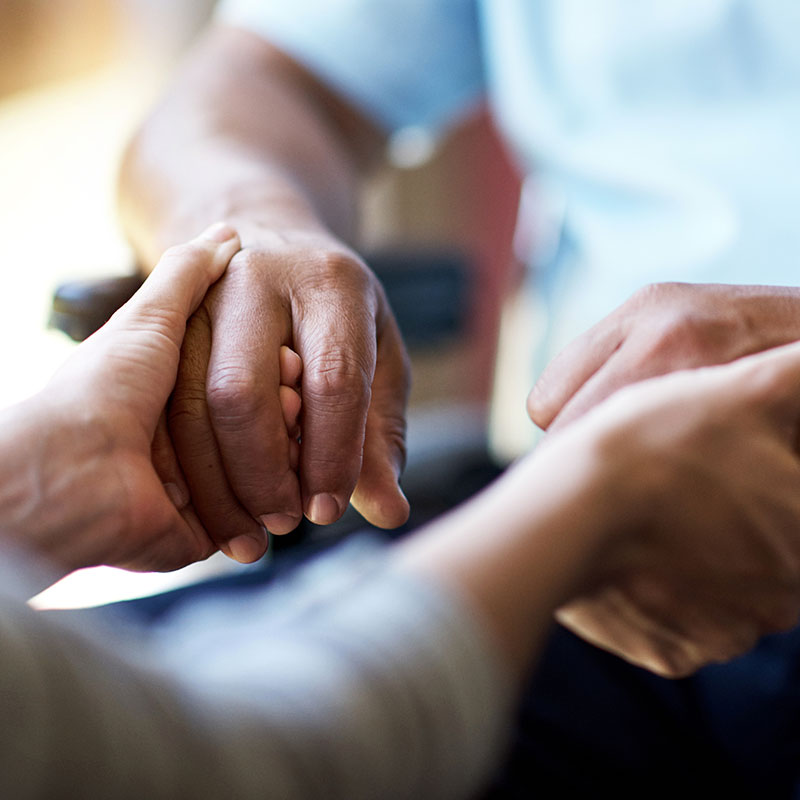Dehydration
Kansas City Nursing Home Dehydration Attorneys
Dehydration Caused by Nursing Home Neglect
Proper nutrition, including hydration, is an elemental need and a basic human right of anyone living in a nursing home or assisted living facility. Unfortunately, nursing home abuse and neglect frequently lead to malnutrition and dehydration in these settings. In severe cases, residents suffering from dehydration can experience significant complications and, in the most extreme cases, fatalities.
If you or your loved one suffered severe dehydration in a nursing home, long-term care facility, or while under the supervision of a private caregiver, the Law Office of Tom Wagstaff Jr. can help. We believe in holding negligent caregivers, staff, and facilities accountable when their failure to provide adequate care results in devastating injuries, illnesses, and deaths—and we have the record to prove it. Our Kansas City dehydration attorneys have successfully represented numerous clients who suffered due to malnutrition and dehydration caused by nursing home neglect, and they are prepared to help you, too.
To learn more, including how we can help you with your nursing home abuse or neglect claim, call 816-708-0524 or reach us online using our secure contact form.

What Is Dehydration?
In the simplest terms, dehydration is a condition in which the body does not have adequate fluids. This occurs when insufficient fluids are consumed or when more fluids are lost than consumed. Mild dehydration can cause thirst, headaches, muscle cramps, less frequent urination, and a dry or sticky mouth. Moderate to severe dehydration can have serious and even life-threatening effects, leading to urinary problems, kidney failure, low blood volume, and seizures. In very severe cases, dehydration can cause death.

Symptoms of Dehydration in Adults
It is important to know and recognize the signs of dehydration in yourself and others. This allows you to seek immediate treatment for yourself or your loved one at the first sign of dehydration before more serious complications can occur. Some of the most common signs of dehydration in adults, including the elderly, include:
- Excessive thirst
- Infrequent urination
- Dark-colored urine
- Dizziness
- Confusion
- Fatigue
- Dry or sticky mouth
- Headache
- Weakness
If you believe that you or your loved one is suffering from dehydration, seek immediate medical attention. Dehydration can be effectively treated with rehydration, but more severe cases will require medical intervention.
Health Effects Associated With Dehydration
Dehydration is always dangerous, but young children and the elderly are especially at risk. Seniors are not only more likely to experience dehydration, but they are also at a greater risk of suffering severe health effects as a result of being dehydrated. Some of the health risks associated with seniors and dehydration include:
- Urinary tract infections (UTIs)
- Kidney stones
- Kidney failure
- Falls
- Blood clot complications
- Heat stroke
- Fainting/loss of consciousness
- Seizures
- Low blood volume (hypovolemic shock)
The elderly are naturally more predisposed to becoming dehydrated than younger adults. Additionally, many medications can make it harder for the body to retain fluids, which may increase the risk of dehydration in those who take these medications.
When Is a Nursing Home Responsible for Dehydration?
Nursing homes and other long-term care facilities are always responsible for caring for the basic needs of their residents. This includes ensuring adequate nutrition and hydration. As such, nursing home staff should regularly check for signs of dehydration and ensure that residents are receiving the proper intake of fluids to remain healthy and safe. When nursing homes fail to properly care for their residents, they can be held responsible for resulting injuries, illnesses, and deaths. Often, nursing home residents suffer malnutrition and dehydration as a result of general neglect, inadequate staff, inadequate training, unsupervised care, and other personnel issues. At the Law Office of Tom Wagstaff Jr., we know how to investigate claims to identify underlying causes of injury. Our experienced nursing home abuse attorneys work with qualified specialists to obtain expert testimony and powerful evidence. Our thorough and methodical approach has helped us achieve a long track record of success on behalf of our clients. Dehydration is considered nursing home abuse due to several key reasons, rooted in the responsibilities of nursing homes and the potential consequences for residents:
Nursing homes are obligated to provide for the basic needs of their residents, which includes ensuring adequate hydration. When residents become dehydrated, it often indicates that this fundamental need is being neglected. This neglect can be due to understaffing, lack of proper training, or deliberate oversight, all of which constitute abuse.
Many nursing home residents are elderly and may suffer from various medical conditions that make them more susceptible to dehydration. They may have diminished thirst responses, cognitive impairments, or physical limitations that prevent them from drinking fluids on their own. In such cases, the nursing home staff is responsible for monitoring and assisting with hydration. Failure to do so can quickly lead to severe dehydration, which is a form of abuse due to the residents' vulnerability.
Dehydration can have serious health consequences, especially for the elderly. It can lead to urinary tract infections, kidney stones, severe constipation, electrolyte imbalances, and even life-threatening conditions such as hypovolemic shock. The severe impact of dehydration on residents' health makes it a critical issue. Allowing residents to reach this state through inattention or neglect is abusive.
Dehydration in a nursing home setting often points to broader systemic problems within the facility. This can include inadequate staffing levels, insufficient training for staff, poor management practices, and lack of proper policies and procedures for monitoring residents' hydration. These systemic issues reflect a neglectful environment that endangers residents' well-being, thus constituting abuse.
Nursing homes are regulated by state and federal guidelines that mandate the provision of adequate care, including hydration. Failure to meet these standards can result in legal and regulatory actions against the facility. When a nursing home consistently fails to ensure that residents are properly hydrated, it is not only a breach of these regulations but also a clear indication of abusive practices.
Nursing homes are required to document and report residents' health status, including their fluid intake and signs of dehydration. Inadequate documentation or failure to report dehydration can suggest attempts to cover up neglectful behavior. This lack of transparency and accountability further underscores the abusive nature of the situation.
How Our Nursing Home Dehydration Attorneys Can Help
If you or your loved one suffered serious dehydration-related health complications due to nursing home abuse or neglect, turn to the team at the Law Office of Tom Wagstaff Jr. We can help you seek justice and the fair recovery you are owed. Depending on the details of your situation, you could be entitled to financial compensation for your medical expenses, lost income, pain and suffering, emotional distress, and related damages. Our team is prepared to aggressively pursue the full amount you are entitled to receive as we fight to hold the liable party accountable.
We care deeply about the people and communities we serve. Led by founding attorney, Tom Wagstaff, our entire team is committed to protecting the rights of the elderly and securing justice on behalf of their families.
